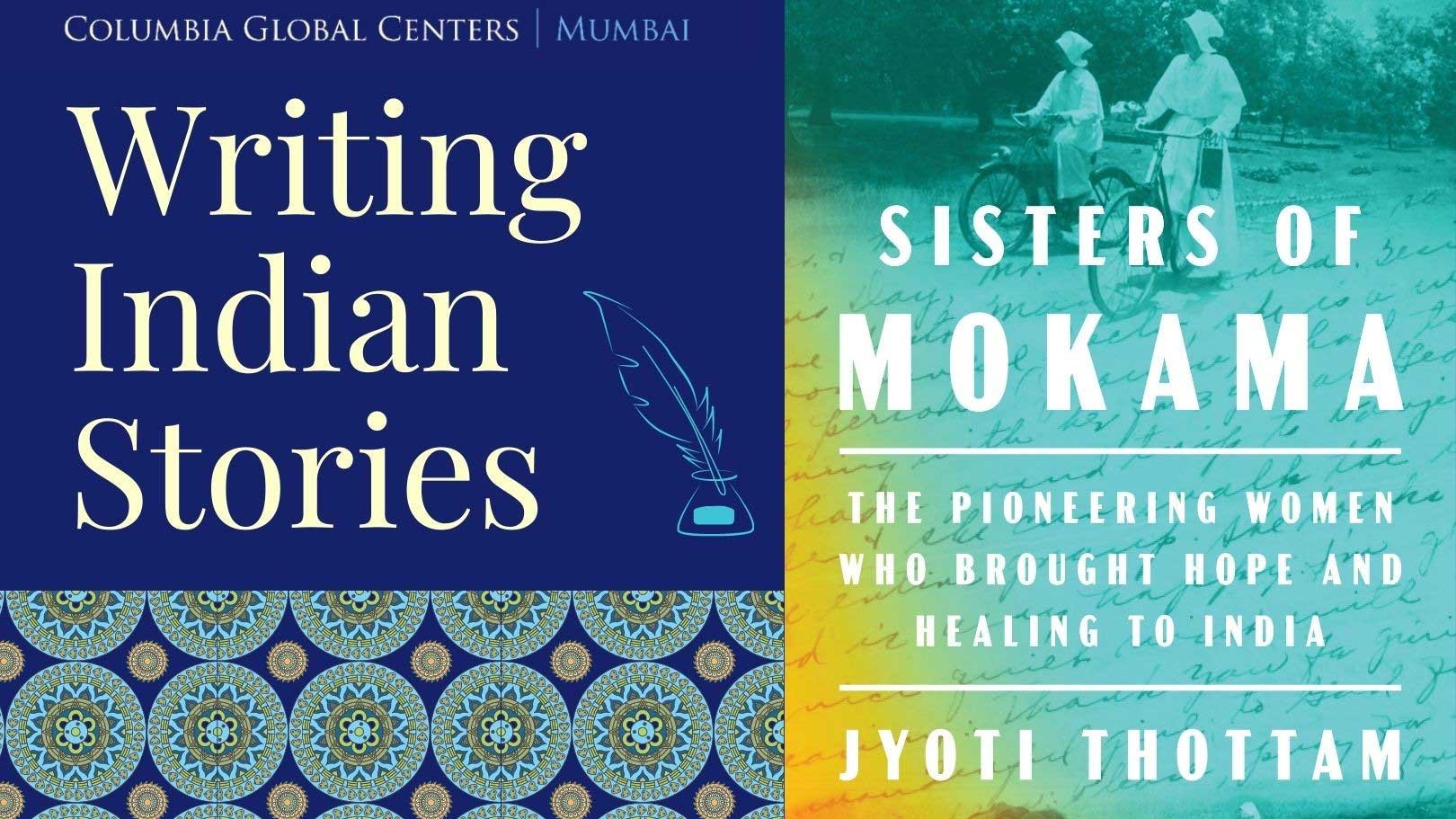War, Women, and the Healing of a Nation
In the same year that India became independent, how did a group of six nuns from Kentucky arrive in Bihar to establish a medical practice that brought care to thousands? On November 3, 2022, Columbia Global Centers | Mumbai organized a conversation with Jyoti Thottam, leader of the editorial board, The New York Times, and alumna of Columbia University’s School of International and Public Affairs. Ms. Thottam was in conversation with the Center’s Director, Dr. Ravina Aggarwal and Professor Jennifer Dohrn, Columbia Nursing School to discuss her recently published book, Sisters of Mokama: The Pioneering Women Who Brought Hope and Healing to India (Penguin Random House 2022). The program was part of the Center’s Writing Indian Stories series that features works of writers from the Columbia University community.
Ms. Thottam’s book, inspired by her mother’s story, traces the journey of six courageous women from Kentucky who left their homes to come to India and set up a missionary healthcare institution, Nazareth Hospital, in Mokama, Bihar. The story prompts a rethinking of nursing and the stereotypes it carries while providing a glimpse into a world rebuilding itself from the tumult of World War II and Partition. It is a deeply feminist quest that outlines the perseverance and commitment to a higher standard of healthcare, noted Dr. Aggarwal.
While the book traces the stories of individuals, it simultaneously alludes to building an institution at a time when many women were able to forge their own paths for the first time. The women who had traveled from Kentucky were missionaries but they were also a part of the community in Mokama, building an institution that would be long-lasting and contribute to society in a meaningful way. “The achievements of the nurses in Mokama are the guidelines that today’s post-pandemic world needs, more than ever, for a robust healthcare system that contributes to global health equity,” remarked Professor Dohrn.
Rather than choosing to write about her mother’s experiences in isolation, Ms. Thottam was able to build a different world where her mother found a space as well. Uncovering the complexities of an oppressive past at a cataclysmic time, the historical record of the book provides a vibrant model for the required standard of healthcare and acknowledges the value of nurses in bridging the gap between healthcare and the community. The lived experiences of the six nuns in Mokama remain relevant in perpetuating the building and rebuilding of a globally equitable healthcare system. Ms. Thottam shared, “My mother was amazed that people found her story interesting because for her, it was just her life. For so many of us, we never know how the choices we make, the things we do and the places we visit, shape history and the rest of the world. That thought made me glad I wrote the book and I hope that I did justice to the story.”
Sharing her investigative process, Ms. Thottam emphasized the contribution that letters, logs, and oral histories made to her book. Lived experiences outlined through different modes of record-keeping made for an integral part of her research in locating the legacy of the women of Nazareth Hospital at a time when the world was in need of deep care and healing. Acknowledging that documented histories can often be histories of erasure, Ms. Thottam felt a great commitment and responsibility in appropriately representing the women and their stories.
As advice to students and aspiring journalists, Ms. Thottam shared, “When looking at the historical record, there are always going to be people who are missing from what’s been written and preserved, but it is important that you feel a commitment towards acknowledging and addressing that. There is value in pursuing various avenues to understand the complete narrative and present a well-researched story.”
